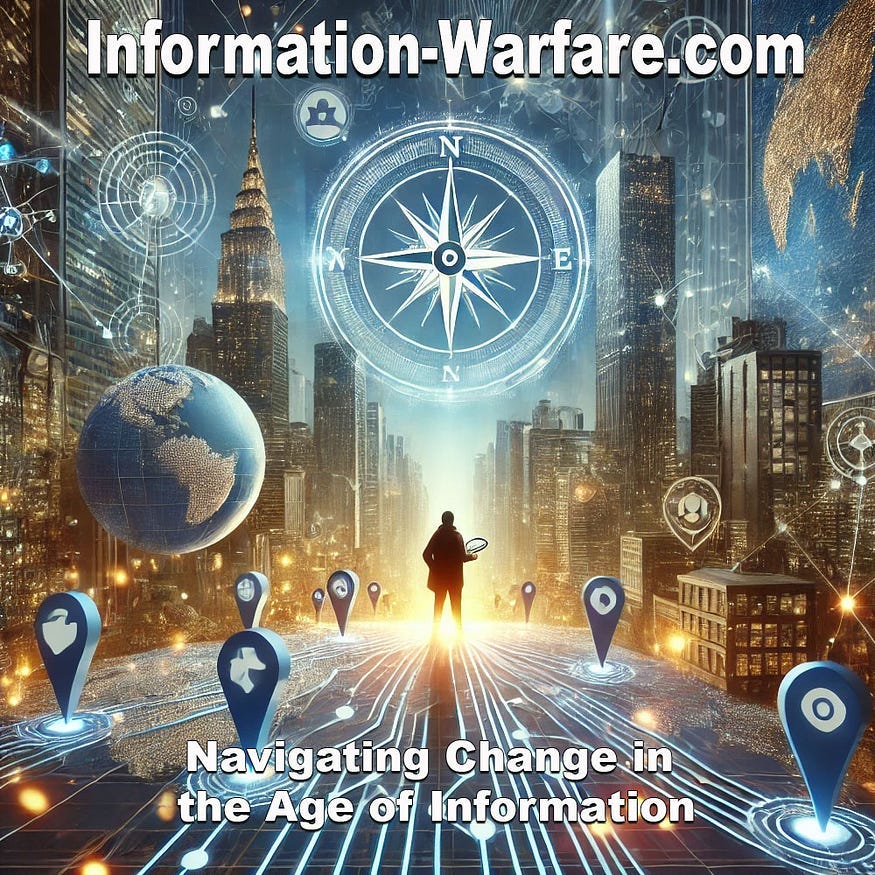America in the 21st Century
Navigating Change in the Age of Information

As we progress deeper into the 21st century, the United States finds itself grappling with profound changes driven by the rapid evolution of technology and the shifting currents of global politics. The age of information has transformed how wars are fought, not with guns and bombs, but with narratives, data, and the power of the internet. In this new era, information has become both a weapon and a shield, and America’s response to the challenges of this age will determine its future trajectory.
The Socioeconomic Wave of Information
The current socioeconomic wave is defined by the overwhelming flow of information across the globe, facilitated by the internet, social media, streaming services, and other digital platforms. In this context, battles are no longer confined to physical spaces but are fought within the very tools that define the information age. The rise of misinformation, the manipulation of narratives, and the influence of foreign actors in domestic politics have all become key concerns in this new landscape.
America’s political landscape has been particularly affected by these changes. The election of Barack Obama, the nation’s first Black president, marked a significant milestone in American history. However, this event also triggered a backlash that pushed the political right further towards the far-right. The ascension of Donald Trump to the presidency can be seen as a direct response to Obama’s tenure — a reaction fueled by fears of change and the exploitation of deep-seated societal anxieties.
The Trump Effect and the Rise of Misinformation
Trump’s rise to power was not merely a political shift; it was a masterclass in leveraging controversy and creating fictitious enemies. Hillary Clinton, who followed Obama as the Democratic nominee, carried with her a legacy of controversies that Trump adeptly manipulated to create narratives of corruption, deep state conspiracies, and elitist agendas. The internet and social media became the battlegrounds where these ideas were spread, gaining traction among millions of Americans.
Trump’s presidency, despite its divisiveness, served an unintended purpose. It exposed vulnerabilities within the American democratic system — vulnerabilities that must be addressed as the nation moves forward into the singularity, the point where technological growth becomes uncontrollable and irreversible. Trump’s tenure revealed how easily misinformation could be weaponized, how political institutions could be manipulated, and how the judiciary, including the Supreme Court, could be influenced to push ideologies that conflict with long-standing constitutional principles.
Lessons Learned and the Need for Reform
One of the key lessons from the Trump era is the necessity of placing checks and balances on all branches of government, including the Supreme Court. The Court’s recent decisions, particularly regarding women’s rights, have shown that it is not immune to political pressures. The idea that the Court could shift decades of precedent to align with a right-wing ideology underscores the need for limits on its power and the introduction of more robust checks.
Furthermore, America must confront the reality that its election laws are in dire need of reform. The fact that a convicted felon can run for office is a glaring flaw in the system. Additionally, the sudden shift of many anti-Trump Republicans, who previously condemned his actions, to supporting him raises serious questions about the influence of money in politics. The Citizens United ruling, which allows for unlimited corporate spending in elections, has opened the door for foreign influences, potentially including Russian funding of certain PACs. This is an issue that requires thorough investigation to ensure that American democracy remains free from foreign interference.
The Path Forward: Hope, Freedom, & Unity
As America looks toward the future, it is clear that the nation is ready for something new. The political pendulum, which swung from Obama to Trump and then to Biden, indicates a society in search of balance and renewal. In this context, figures like Kamala Harris and Tim Walz represent a new generation of leaders who embody hope, freedom, and unity — values that are essential for healing the divisions of the past and guiding the nation into a brighter future.

America has a remarkable ability to adapt and choose the right leaders for the right time. As the country navigates the challenges of the 21st century, there is reason to believe that it will continue to rise to the occasion, electing leaders who can steer the nation through the complexities of the information age and beyond. The lessons learned from recent history will be crucial in shaping a future where democracy is safeguarded, misinformation is countered, and unity prevails over division.


